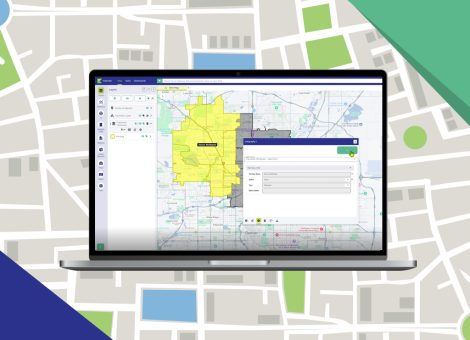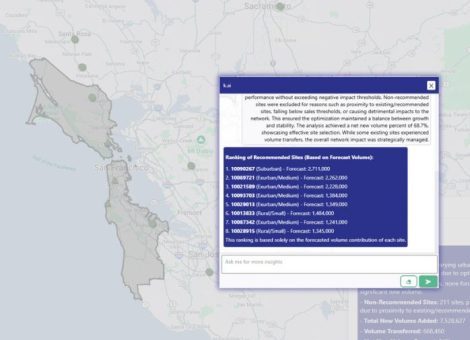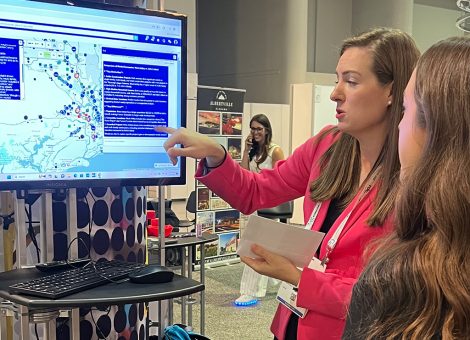Canadian 2021 National Retail Petroleum Site Census — Executive summary
The 2021 National Retail Petroleum Site Census, researched and published by Kalibrate Canada Inc. is a comprehensive enumeration of Canada’s petroleum retail outlet population. This is a unique study: there is no other single industry or governmental source of such information.
As of December 31, 2021 — 11,934 retail gasoline stations were operating in Canada, or 3.1 outlets for every 10,000 people. This is an increase of 26 sites over last year’s survey result, marking a decade in which the number of sites in Canada has varied little from the 12,000 mark, declining just 2.4% over the last decade. This follows the previous two decades in which the number of Canadian retail gas stations declined by nearly 40%.
Diversity in site operation
Our census illustrates a continued diversity of brands of gasoline in Canada (we documented 96 different “brands” of gas). However, the refined products sold by these brands originate primarily from just 13 refineries in Canada, operated by eight refining organizations (five of which are integrated refiner-marketers). The brands represented by these refining organizations account for just over 60% of all sites in Canada, virtually unchanged in the last decade.
Increasingly, the posted brand at a gas station is becoming less indicative of the marketer relationship or ownership at that site. In 2021, 37% of the fuel marketers in Canada were operating a portion of their network under a brand owned by another company, representing 38% of stations in Canada, up from just over 18% a decade ago. These marketers typically operate under a branded supply agreement with the brand owner (often a refiner such as Shell or Esso), benefitting from the brand recognition, marketing support, and loyalty programs of the established brand.
In total, we identified 67 distinct companies marketing gasoline in Canada. Of these 67 companies, 59 markets at least a portion of their fuels under their own brands, representing 50% of Canadian stations, down from 68% of sites a decade ago.
Pump price control
Nearly half of the sites in Canada (5,500) are price-controlled by individual operators (retailers or dealers), while 6,400 sites are directly price-controlled by refiner and non-refiner marketers, selling fuel through their controlled networks of stations. The brands owned by the three “major” oil companies (by virtue of their cross-Canada presence) of Petro-Canada, Esso, and Shell, appear at 42% of stations across Canada; only 11% come under their direct price control, however.
In 2021, the number of gas stations falling under the price control of one of the refiner marketers in Canada fell a modest 1% point from the previous year to 20% of all gas stations. This was down from 27% a decade ago, primarily attributable to several factors:
• The divesting of Imperial Oil’s nearly 500 retail operations in 2016
• In 2019, when the Prince George refinery in British Columbia changed ownership from Husky Energy (now owned by Cenovus Energy) to Tidewater Midstream & Infrastructure Ltd., a company not involved in fuel marketing. At that time, the Husky brand appeared on nearly 400 gas stations.
• Most recently in 2020, the North Atlantic refinery in Newfoundland shut down with an announcement in 2021 that the facility would be changing over to a renewable fuel plant. The company currently markets roughly 60 locations in Newfoundland, setting the price at 28 of those locations
Outlet features and offerings
The provision of goods or services other than gasoline is vital to the competitiveness and availability of retail gasoline outlets. Research has shown that the gross margin on gasoline itself is rarely sufficient to provide for the operating costs and reasonable return on the operation of these facilities. Accordingly, this report also measures the market representation of several site features and offerings: the type of pump service (full, self, or split), convenience store size, car washes, fast food, automotive service, and diesel offerings. Additionally, we have measured the representation of electric vehicle charging stations at gasoline stations in Canada.
Lower average site throughputs at gasoline stations during the last two years have put greater emphasis on ancillary site offerings at gasoline stations to maintain profitability. In 2020, there was a significant decline in petroleum demand due to travel restrictions instituted to curb the spread of the COVID-19 virus. Consequently, after steadily climbing for the last three decades, the average site throughput at Canadian sites in 2020 declined by an astounding 16.8% to 3.3 million annual litres. Although restrictions eased somewhat in 2021, the average site throughput at Canadian gas stations has not returned to pre-pandemic levels, reaching just 3.5 million annual litres in 2021, 11.7% below 2019 levels.
For unrivaled insight into the Canadian petroleum retail market,
Purchase the full report
Read more articles about:
Location intelligenceSubscribe and get the latest updates
You may unsubscribe from our mailing list at any time. To understand how and why we process your data, please see our Privacy & Cookies Policy
Related posts
Location intelligence
Right-size your franchise territories: Maximize revenue per market
Franchise territory management tools are evolving changing with advances in location intelligence.

Location intelligence
AI in location intelligence: The force multiplier for smarter site selection
AI is rapidly advancing in the world of real estate - this is the first blog in a two-part series on incorporating AI...


